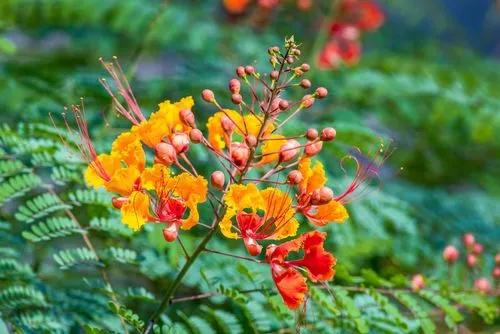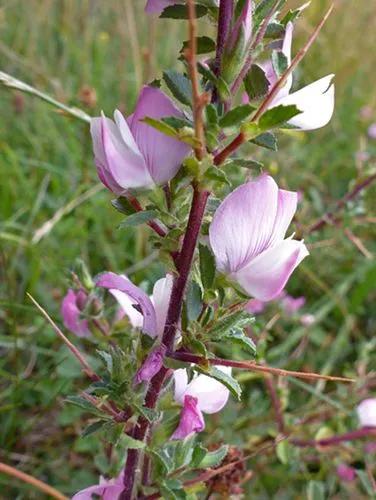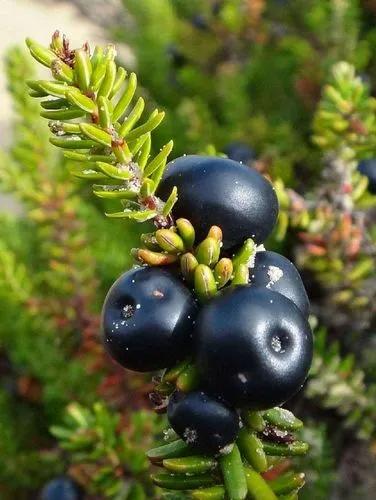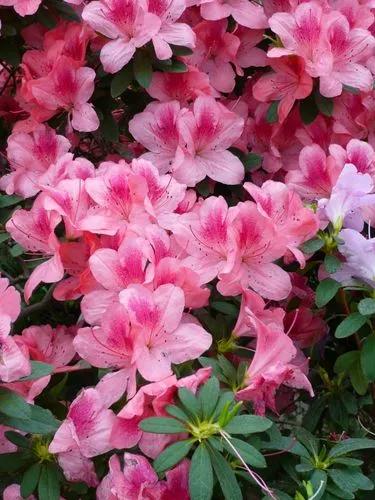Adam's needle (Yucca filamentosa) is a broadleaf evergreen shrub that is often used in Southwest themed landscapes, event though it is native to the Southeast U.S. Adam's needle is related to many other commonly grown cacti and succulents, and the family to which it belongs reveals another surprising relative—asparagus.Adam's needle is a virtually stemless shrub that looks more like a perennial plant. The blade-like leaves form a basal rosette ending in spines. The foliage clumps are usually 2 to 3 feet tall, with curled threads lining the edges of the leaves, giving it its species name—filamentosa—meaning a thread or "filament."Mature plants send up flower stalks from the center of the foliage in late spring, which can double the height of this yucca plant, sometimes growing to over 8 feet tall. The flower cluster usually appears right around the beginning of summer, with individual blooms taking the shape of nodding, white bells. his is a slow-growing plant, which may not produce flower spikes until it is four to five years old. Adam's needle can be planted almost any time, though it is most commonly available at nurseries in the spring. However, transplanting, or taking basal offsets of Y. filamentosa is best done in the fall.
Adam's Needle Care
Yucca Filamentosa
Other names: Carolina Silk Grass, Needle Palm, Our Lord's Candle, Spoonleaf Yucca, Thready Adam's Needle



How to Care for the Plant

Water

In terms of watering, the adam's needle is a fairly simple plant to take care of, this is mostly because it has a straightforward watering schedule and some rather regular watering needs. specifically, most experts agree that the yucca filamentosa grows best with watering each week. increase the frequency of watering when it gets hot.

Pruning

Remove any dying or yellowing leaves for aesthetic reasons.

Fertilizer

Universal fertilizer is granular and mineral product intended for fertilization of all types of garden cultivations. Its balanced content is suitable both for fruit trees, fruit bushes, vegetables and ornamental plants. The even composition of individual elements makes the fertilizer universal.

Sunlight

The East window is often considered the best window for houseplants as its cooler than the west window without the dangers of overheating. West windows received full sun for part of the day and bright light for the rest, great for flowering plants.

Soil

Requires a well-drained, loose mixture of potting soil.

Temperature

This plant usually readily survives temperatures down to 5 degrees Fahrenheit, but if covered with mulch over winter, it will survive temps of minus 10 to minus 20 degrees.

Container

Whether it be plastic or clay, make sure the pot you select has drainage holes in the bottom to prevent over-watering.

Popularity

3,821 people already have this plant 653 people have added this plant to their wishlists
Discover more plants with the list below
Popular articles






